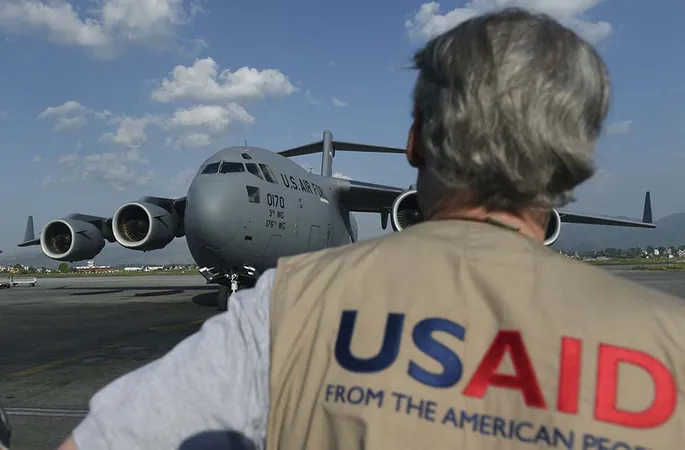
Crisis in Nepal: HIV Prevention Efforts Come to a Standstill After USAID Withdrawal
2025-04-24
Author: Siti
Nepal Faces Dire HIV Prevention Setback
KATHMANDU – In a devastating blow to public health, Nepal's efforts to combat HIV are stalling due to the suspension of crucial USAID funding. Hundreds of vulnerable individuals, including female sex workers, gay men, and people using injectable drugs, have lost access to pre-exposure prophylaxis (PrEP), a vital medication to protect against HIV infection.
The Ripple Effect of USAID’s Pullback
Since the end of January, the US government's decision to suspend nearly all foreign aid for three months has halted the distribution of PrEP, according to Lok Raj Pandey, an information officer at the National Center for AIDS and STD Control. "Without the support of these programmes, many high-risk individuals—including pregnant women whose partners are HIV positive—are deprived of essential medications meant to prevent infection," Pandey explained.
A Broad Impact on HIV Initiatives
The suspension of PrEP is just one part of a larger crisis, affecting vital HIV-related initiatives such as awareness campaigns, community testing, and targeted behavioral interventions. Over 1,500 at-risk individuals were benefiting from these USAID programmes, distributed across 26 vulnerable districts in Nepal.
Financial Constraints Threaten Future Plans
Despite the severity of the situation, the Nepalese government has only allocated funds for testing and treatment of those already infected with HIV. Unfortunately, the probability of securing a budget for preventive measures next fiscal year is nearly non-existent, as the overall budget has been slashed by Rs55 million.
Statistics Paint a Grim Picture
By 2023, approximately 30,300 people were living with HIV in Nepal, with an estimated 261 deaths attributed to AIDS in just that year. The suspension of numerous healthcare initiatives, including crucial health surveys and training programs, adds to the dire circumstances facing public health efforts.
A Glimmer of Hope?
Officials from the Ministry of Health have indicated their intention to increase the budget ceiling, while the United Nations Development Programme (UNDP) has pledged to invest in some HIV preventive measures. Although these initiatives targeting migrant workers and other high-risk groups have not yet commenced, there is hope that they will soon begin.
The health crisis serves as a stark reminder of the vulnerability of essential health services and the dire consequences of funding suspensions. The future of HIV prevention in Nepal hangs in the balance, and urgent action is needed to safeguard the health of its most at-risk populations.



 Brasil (PT)
Brasil (PT)
 Canada (EN)
Canada (EN)
 Chile (ES)
Chile (ES)
 Česko (CS)
Česko (CS)
 대한민국 (KO)
대한민국 (KO)
 España (ES)
España (ES)
 France (FR)
France (FR)
 Hong Kong (EN)
Hong Kong (EN)
 Italia (IT)
Italia (IT)
 日本 (JA)
日本 (JA)
 Magyarország (HU)
Magyarország (HU)
 Norge (NO)
Norge (NO)
 Polska (PL)
Polska (PL)
 Schweiz (DE)
Schweiz (DE)
 Singapore (EN)
Singapore (EN)
 Sverige (SV)
Sverige (SV)
 Suomi (FI)
Suomi (FI)
 Türkiye (TR)
Türkiye (TR)
 الإمارات العربية المتحدة (AR)
الإمارات العربية المتحدة (AR)